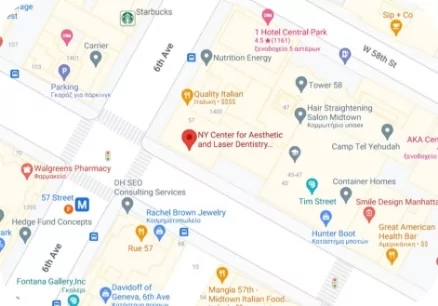
Do gaps in your smile often make you self-conscious? Do they hinder your everyday activities like eating or speaking? Over time, missing teeth can cause bone loss, lead to misalignment, and change facial structure, giving a more aged appearance.
Dental implants are the gold standard for tooth replacement. They not only restore your smile but also provide the strength and function of a natural tooth. Built to last and blend seamlessly with your existing teeth, teeth implants are the ultimate solution for individuals seeking to regain the confidence that comes with a complete and beautiful smile. Don’t let a missing tooth dictate your life; invest in dental implants near me and rediscover the joys of a full smile. Schedule your consultation today.
How the Dental Implant Process Works
The journey to restoring your smile with dental implants begins with a detailed consultation at our clinic. This initial step is crucial for mapping out a personalized treatment plan and ensuring you’re a good candidate for implants dental procedures. Following a successful consultation, the implant process involves several key steps:
- Consultation: Start with a comprehensive consultation. Here, Dr. Poiman will evaluate your oral health, review any necessary x-rays, and determine if you’re a prime candidate for dental implants.
- Preparation: Before the actual procedure, Dr. Poiman may need to prepare the site for implants dental work, which can include tooth extractions or bone grafting.
- Placement of Implant Post: Dr. Poiman will surgically place the titanium post into the jawbone. This acts as the new tooth’s root and offers unmatched stability.
- Healing and Osseointegration: As the mouth heals, the implant will fuse with the bone, a crucial process called osseointegration. This can take a few months but ensures the implant’s longevity and strength.
- Attachment of Abutment: Once healing is complete, an abutment, a small connector, is fixed atop the implant. It serves as the anchor for the replacement tooth.
- Crown Placement: A custom-made crown, designed to blend seamlessly with your natural teeth, is then placed on the abutment.
The result? A fully restored smile with a new tooth that not only looks but also feels and functions just like its natural counterparts. Enjoy crunchy foods and unabashed smiling again with dental implants.
Advantages of Dental Implants
Dental implants stand out as the premier choice for replacing missing teeth due to their comprehensive benefits that extend beyond just aesthetic enhancement. They are designed to replicate the look, feel, and function of natural teeth, ensuring a seamless integration into your smile. Here are the key advantages:
- Natural Appearance and Function: Implants are virtually indistinguishable from your natural teeth, restoring your ability to eat, speak, and smile with confidence.
- Durability: With diligent oral hygiene and regular dental check-ups, implants can serve as a lifelong solution, making them a cost-effective choice in the long run.
- Prevents Bone Loss: Implants are the only tooth replacement option that stimulates bone growth, preventing the jawbone deterioration that typically follows tooth loss.
- Improved Oral Health: Unlike bridges, implants do not require altering adjacent healthy teeth, preserving your natural tooth structure and improving long-term dental health.
- Enhanced Comfort: Once fully integrated with the jawbone, implants eliminate the discomfort and insecurity associated with removable dentures.
- Convenience: Implants do away with the inconveniences of dentures, such as the need for adhesives and the potential for slippage.
- Better Nutrition and Enjoyment of Food: With their stability and biting force similar to that of natural teeth, implants allow for a varied diet, including foods that are typically challenging to eat with dentures or other prosthetics.
- Protects Facial Structure: By maintaining the integrity of the jawbone, implants prevent the sunken facial appearance often associated with tooth loss.

Opting for dental implants means investing in not just a restored smile, but also improved functionality, comfort, and overall quality of life. If you’re considering this treatment, our clinic offers a free consultation to help you understand how dental implants can specifically benefit your oral health and aesthetics.
One-Stop Dental Implants Shop
At our Manhattan clinic, we pride ourselves on being a one-stop shop for dental implants near me. From the initial consultation to the final placement of the crown, every step of the dental implant process is handled by our team of experienced professionals. This ensures continuity of care and a streamlined experience for our patients.
Our state-of-the-art facility is equipped with the latest technology, allowing us to provide the highest standard of care. We also understand that the cost of dental implants can be a concern for many patients, which is why we offer flexible financing options to make this life-changing treatment more accessible.
If you want to know more about the cost of dental implants, give us a call!
Accelerated Treatment and Guided Implant Surgery
In today’s fast-paced world, we recognize the importance of time for our patients. That’s why we’re proud to offer accelerated treatment options for dental implants, utilizing the latest in dental technology to streamline the entire process. By employing advanced healing techniques, we’re able to significantly reduce the waiting period between implant placement and final restoration, getting you back to your best smile quicker than ever.
Moreover, our clinic embraces guided implant surgery, a forefront approach in dental implantology. This method leverages precise 3D imaging to meticulously plan each surgery, ensuring optimal implant placement. The precision afforded by guided surgery not only minimizes the risk of complications but also enhances the overall success rate of the implant procedure.
Patients benefit from a smoother surgical experience and a faster recovery time, making the journey towards a restored smile both efficient and comfortable. This commitment to incorporating the latest advancements in dental care is part of our dedication to providing top-tier treatments and outcomes for our patients.
Take the First Step Toward a Restored Smile
Dental implants can dramatically improve the quality of your life by restoring the function and aesthetics of your smile. If you are in Manhattan and considering dental implants, don’t hesitate to reach out to our clinic. Our team of experts is here to guide you through every step of the process. Take the first step towards a beautiful, healthy smile by scheduling a consultation with us today. Your new smile is waiting!



